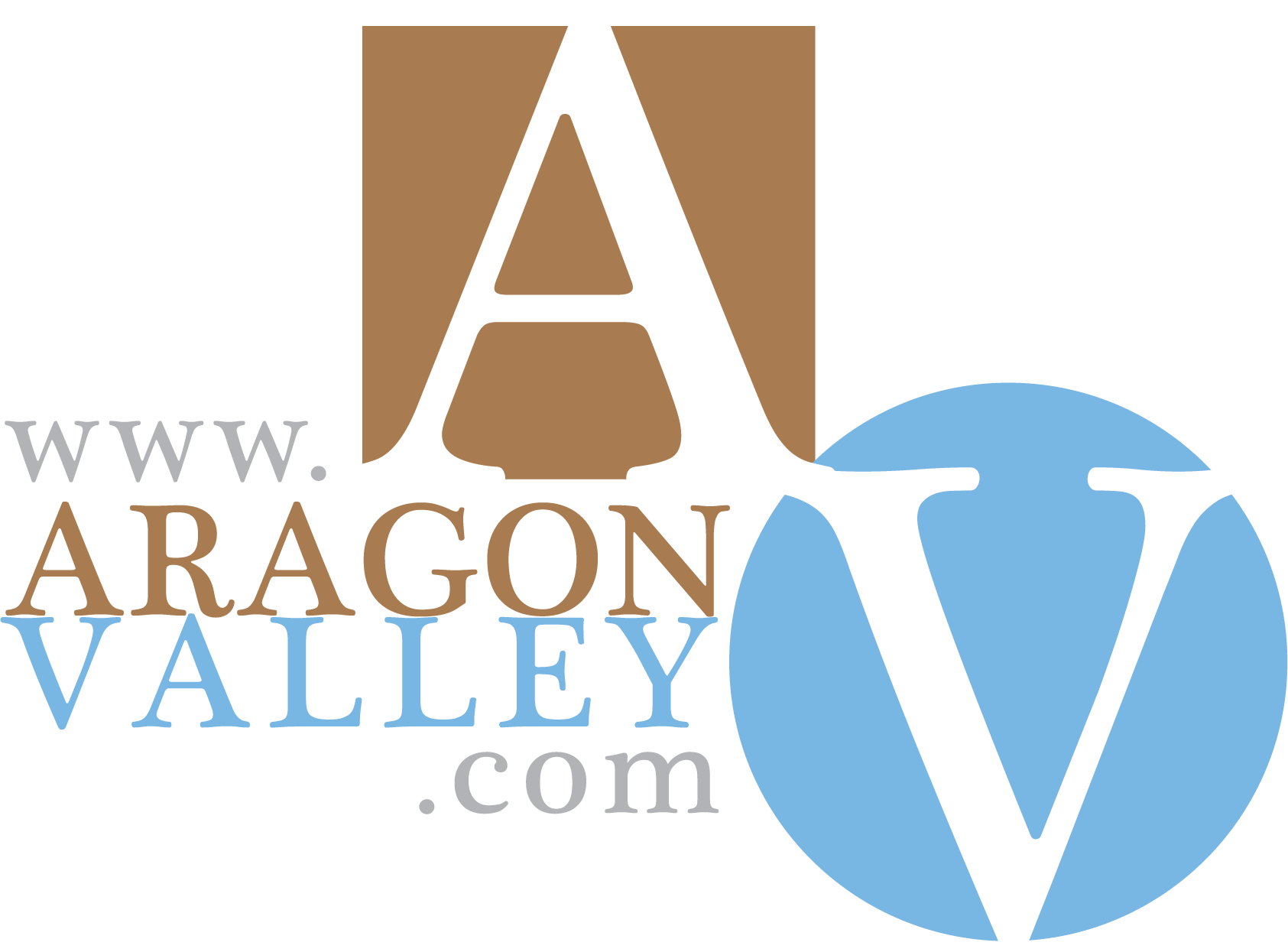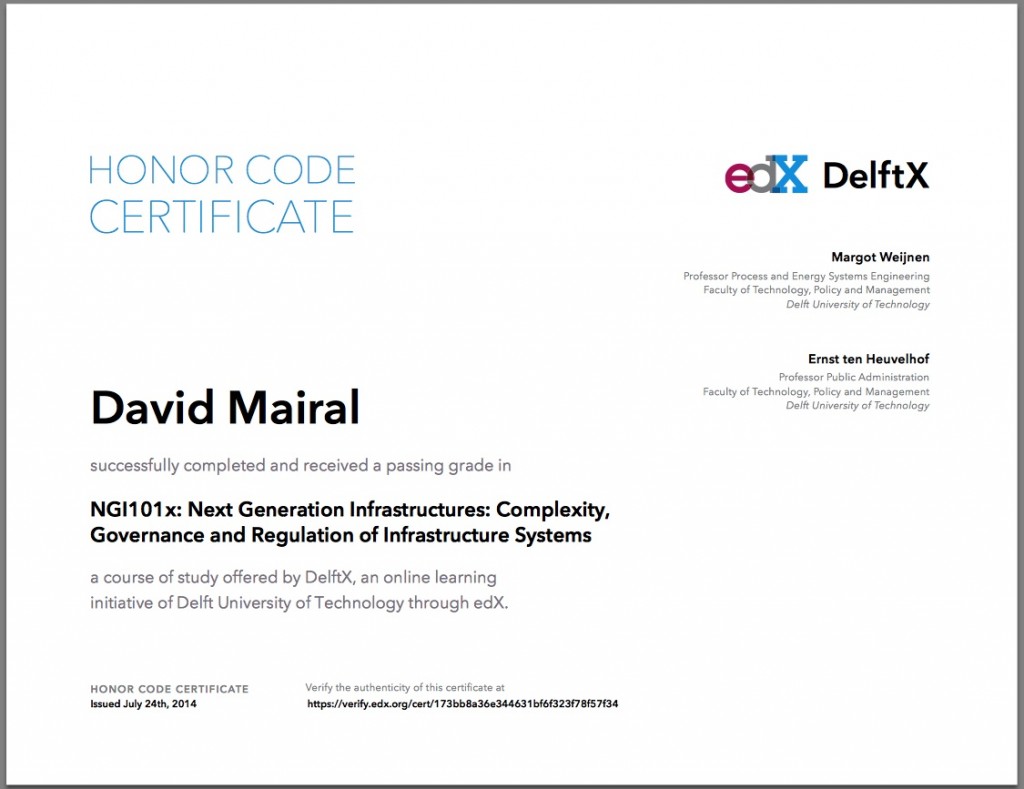This post is also available in: Spanish
Last april 2014, I started a course on the Internet offered by an university throughout one of the emerging educational sites (edX y Coursera, MiriadaX in Spanish); online learning initiative called MooC (Massive open online course).
Yesterday, I received the course´s certificate: my first certificate proving the successfully completion and passing grade of the course “Next Generation Infrastructures part I” of the Delft University of Technology (Nederlands). The certificate is a “honor code” certificate, is this:
In addition, the authenticity of the certificate is also verified by the learning platform, edX, here.
The course
To get the certificate, I had to:
- follow the lectures and read the course´s documentation that the teaching team uploaded on the site every week;
- to carry out some exercises and send them throughout the site in a weekly bases, for which I had to search and consult additional information on the Internet, among other sources.
Completing these tasks took me a daily average time of approximately one hour and the simple compliance with the deadlines and length criteria were enough.
Apart from this, I had to prepare and issue a final exercise, more extensive than the weekly exercises, and also to read the final exercises of other four students and perform a kind of “peer review”. This took me no less than ten hours and to pass it, I had to comply with the deadlines, length criteria and certain quality conditions.
Summarizing, the level of dedication for a good course´s performance is quite similar to the level I found when enrolled in traditional or other blended university classes. In fact, to pass the course brought me a satisfaction and knowledge similar to the ones I got when passing a subject in any other university career, despite that it is also true that the criteria and methods of control are less exhaustive.
As a conclusion, this an university level course, with all its implications.
The concept
Technologically, it is anything but something revolutionary or unveiled: teachers performing classes in front of a camera, broadband Internet and an interface for the interaction between the teaching team and the students.
The most important is what there is behind: professors from worldwide universities -including the best ones- planning educational programmes, recording their lectures in video, sharing their documents and publications and monitoring the course´s progress of people from almost anywhere in the world.
That is, you have at your disposal one of the greatest initiatives of humankind.
This si just the beginning and these educational methods have a long way to go:
- the evaluation criteria and control methods of the courses´progress are one of the most criticised aspects of these education and are, indeed, points to improve;
- in addition, the effectiveness of the courses in topics that need to perform practice with specific instruments and equipment, such as laboratory practices.
However, I have absolutely no doubt that all this and other aspects will be improved little by little and that this educational system will be fully accepted. The fact that the own universities are now issuing certificates under their name and validating college credits within their educational programmes are proof of that.
The certificate I got yesterday is the first of many that -hopefully- will prove my specialization in further times. It goes straight to my curriculum!.


 Aragonese
Aragonese English
English Spanish
Spanish
Will I get job based on this certificate.
Can we attest this certificate in GCC legally
This is not formal education and does not provide any licence to operate in any activity.
I don´t know what GCC is.